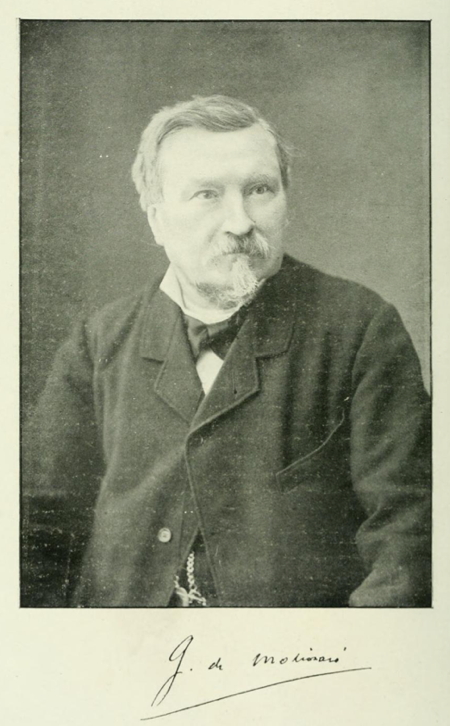As part of our commemoration of the Centennial of his death at 92 years of age on 28 January, 1912 in Adinkerke, Belgium we will highlight some important aspects of his thought.
The day after the February Revolution broke out in 1848 Frédéric Bastiat, Hippolyte Castille, and Gustave de Molinari started a short-lived revolutionary magazine called La République française. It appeared daily in 30 issues between 26 February and 28 March. The format of the magazine was only one or two pages which could be handed out on street corners or pasted to walls so that passers by could read them. This is how the editors justified their choice of title. Imagine reading this flyer pasted to a wall or the side of a house as one walked around the streets of Paris in the middle of the revolution in February 1848!:
“A Few Words about the Title of our Journal” (26 February 1848)
Let’s begin with a few words about the title of our journal.
The provisional government wants a republic without ratification by the people. Today we have heard the people of Paris unanimously proclaim a republican government from the top of its glorious barricades, and we are of the firm conviction that the whole of France will ratify the wishes of the conquerors of February. But whatever might happen, even if this wish were to be misunderstood, we will keep the title which the voice of all the people have thrown to us. Whatever the form of government which the nation decides upon, the press ought henceforth remain free, no longer will any impediment be imposed upon the expression of thought. This sacred liberty of human thought, previously so impudently violated, will be recognised by the people, and they will know how to keep it. Thus, whatever might happen, being firmly convinced that the republican form of government is the only one which is suitable for a free people, the only one which allows the full and complete development of all kinds of liberty, we adopt and will keep our title:
THE FRENCH REPUBLIC.
Time and events are pressing, we can only devote a few lines to stating our program.
France has just got rid of a regime which it found odious, but it is not sufficient just to change men, it is necessary to also change things.
Now, what was the foundation of this regime?
Restriction and privilege! Not only was the monarchy, which the heroic efforts of the people of Paris have just overturned, based upon an electoral monopoly, but it also depended upon numerous branches of human activity from which it profited with invisible ties of privilege.
We wish that henceforth labour should be completely free, no more laws against unions, no more regulations which prevent capitalists and workers from bringing either their money or their labour to whatever industry they find agreeable. The liberty of labour (“la liberté du travail”) proclaimed by Turgot and by the Constituent Assembly ought henceforth be the law of a democratic France.
Universal suffrage.
No more state funded religions. Each person should pay for the religion which he uses.
The absolute freedom of eduction.
Freedom of commerce, to the degree that the needs of the treasury allow. The elimination of “duties on basic food” as we enjoyed under the Convention. Low prices (la vie à bon marché) for the people!
No more conscription; voluntary recruitment for the army.
Institutions which allow the workers to find out where jobs are available and how to discover the going rate of wages throughout the entire country.
Inviolable respect for property. All property has it origin in labour: to attack property is to attack labour.
Finally, in order to crown the work of our glorious regeneration, we demand leniency within the country and peace outside. Let us forget the past, let us launch into the future with a heart without any hatred, let us fraternize with all the people of the world, and soon the day will come when liberty, equality, and fraternity will be the law of the world!


